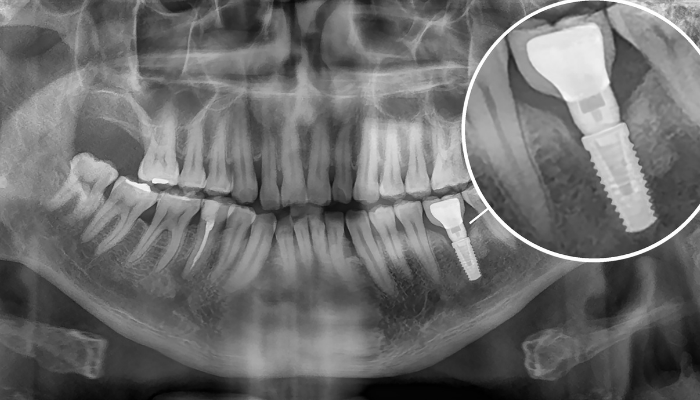Losing a tooth can be a distressing experience, not just for the aesthetic implications but also for the functional ones. Thankfully, advancements in dental technology have provided us with dental implants, a revolutionary solution for tooth loss. These implants are more than just prosthetics. They provide a permanent and natural-feeling alternative to dentures and bridges. The secret behind the success and reliability of dental implants lies in the strong bond they form with the jawbone. To truly appreciate the wonders of this treatment, let’s delve deeper into how dental implants bond with the jaw and why this bond is so pivotal.
The Marvel of Osseointegration
Dental implants don’t just sit idle after they’re surgically placed into the jaw. There’s a beautiful biological process that takes place afterwards. This metal post or screw gradually becomes one with your jawbone in a process called osseointegration. It’s akin to nature’s own welding, where the bone grows around the implant, firmly anchoring it in place. This bonding is the cornerstone of ensuring the implant’s stability and durability, acting just like a natural tooth root.
Experiencing the Natural Feel of Dental Implants
One might question, “How close can a dental implant feel to a real tooth?” The answer is surprisingly close. Due to the bond formed between the jawbone and the implant, the stability and sensation are almost indistinguishable from a natural tooth. You can laugh, speak, eat, and go about daily activities without the constant reminder of an artificial implant. Moreover, with the proliferation of the best dental implants in India and places alike, it’s becoming increasingly accessible for people to regain their natural smiles.
Significance of High-Quality Implants
It’s important to understand that dental implants come in various qualities, and this plays a significant role in their success. The type of material used, the design, and the precision in manufacturing can greatly influence how well the implant integrates with the jawbone. The best implant dentist in India and similar places always emphasizes the importance of using high-quality implants. These top-tier brand implants like Nobel Active and Strauman not only ensure a better bond with the jaw but also significantly reduce the chances of complications.
Caring for Your Implants
Once you’ve undergone the dental implant procedure, the journey doesn’t end there. Proper aftercare is crucial to ensure the longevity and functionality of the implant. Just like natural teeth, implants require regular cleaning to prevent the buildup of plaque and bacteria. Regular dental check-ups are important, as your dentist can monitor the health of your implant and the surrounding gum tissue. For those who are on the lookout for the best dental implant clinic in Delhi or nearby areas, it’s essential to choose a clinic that provides comprehensive post-implant care guidance.
On The Whole
Dental implants are more than just artificial tooth replacements. They form a lasting bond with the jaw, offering a feel that’s as close to natural as possible. It’s no wonder why so many people are googling “best dental implants near me” these days. And if you ever find yourself in the bustling streets of Delhi, there is a widely recognized clinic known as Smile Delhi – The Dental Clinic. They are well known for their versatile set of services and skilful team who put patient’s comfort first. For further information, contact them via their website- Dentalclinicdelhi.com.
FAQs
How do dental implants bond with the jawbone?
Dental implants bond with the jawbone through a biological process called osseointegration. This process is the key to the long-term success of dental implants. During the procedure, a post is surgically implanted into the jawbone. Over time, the bone tissue naturally grows around and fuses with the implant, creating a strong and durable connection.
What factors affect the bonding process?
Several factors can influence the success of osseointegration. One critical factor is the density and quality of the patient’s jawbone. A healthy, dense jawbone provides a more stable foundation for implant placement. Other factors include the patient’s overall health and lifestyle habits. Additionally, proper oral hygiene and regular dental check-ups are essential for successful bonding.
How long does bonding take?
The duration of osseointegration can vary from person to person, but it typically takes between 3 to 6 months. During this period, the bone gradually integrates with the implant. After successful bonding, the permanent crown or restoration is attached to the implant.

